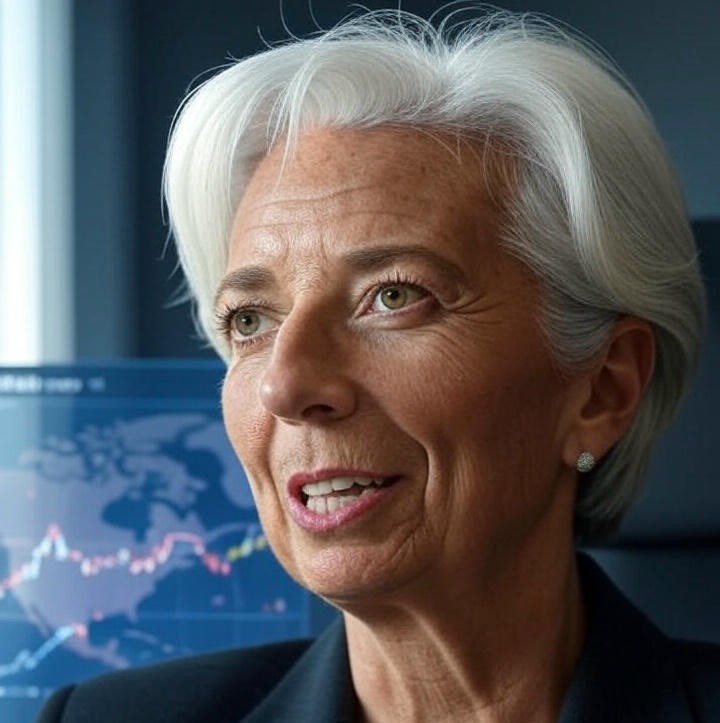The euro recently climbed to a one month high against the U.S. dollar. This increase in value happened after two major developments former U.S. President Donald Trump announced a delay in tariffs and European Central Bank (ECB) President Christine Lagarde shared strong remarks about the future of the euro.

Why Did the Euro Strengthen?
There were two main reasons why the euro became stronger:
1. Trump’s Tariff Delay
Tariffs are taxes that countries place on imports and exports. When tariffs are announced they can hurt international trade. Investors often become worried and currencies from countries involved in the tariffs can lose value.
When Donald Trump announced a delay in these tariffs it gave global investors some relief. They felt more confident in the stability of international trade. As a result they started buying more euros and that pushed up the value of the euro compared to the U.S. dollar.
2. Lagarde’s Bold Statement
Christine Lagarde President of the European Central Bank made a powerful statement. She said that the euro has the potential to challenge the U.S. dollar’s position as the world’s main reserve currency. For this to happen, she said Europe needs a stronger financial system and better political unity.
Her comments made investors more optimistic about the euro. They saw it as a sign that Europe is serious about strengthening its economy and its currency. That also helped the euro gain value.
What Is a Reserve Currency and Why Does It Matter?
A reserve currency is a currency that many countries keep in large amounts for international trade and financial stability. Right now the U.S. dollar is the main reserve currency in the world. Most global trade and oil purchases are done in dollars.
If the euro starts to challenge the dollar as a reserve currency it would be a huge change in the global financial system. Countries would begin to use the euro more in trade, banking and investing. This could reduce the power of the U.S. dollar and increase the importance of the euro in world markets.
What Does a Strong Euro Mean for You?
A stronger euro can affect different people and businesses in many ways:
1. For European Consumers
When the euro is strong imported goods become cheaper. That means products from outside the European Union like electronics, clothes or oil cost less. This is good news for European shoppers.
2. For European Exporters
On the other hand a strong euro can hurt companies that sell goods to other countries. Their products become more expensive for foreign buyers. This can reduce sales and hurt profits.
3. For Tourists
If you live in the eurozone and want to travel abroad a strong euro means your money goes further. You will get more value when exchanging euros for other currencies like the dollar or yen.
How Markets Reacted
Financial markets responded quickly to these events. The euro rose to a one month high against the dollar. Stock markets in Europe also showed some gains as investors felt more confident about the region’s economy.
Currency traders—who buy and sell currencies for profit also reacted. Many of them started buying euros expecting its value to rise further. This added more strength to the euro in the short term.
What Needs to Happen Next?
Christine Lagarde mentioned that for the euro to really challenge the dollar Europe needs to improve its financial system. This includes:
- Creating a single market for capital across all EU countries
- Completing a banking union that protects customers in all member states
- Increasing political unity across Europe
These are not easy tasks. They require cooperation among all EU member countries. But if these steps are taken it could build trust in the euro and increase its use worldwide.
Conclusion: A Stronger Euro, But Challenges Remain
The recent rise in the euro’s value is a sign of growing confidence in the European economy. Trump’s delay in tariffs and Lagarde’s strong comments both helped boost the euro. Investors are watching closely to see if this strength will last.
However for the euro to become a real competitor to the U.S. dollar as a reserve currency Europe must continue to build a stronger and more united financial system. This will take time, effort and cooperation among countries.
For now the euro’s strength is good news for European consumers and travelers. But it also brings challenges for exporters and raises important questions about the future of global finance.
